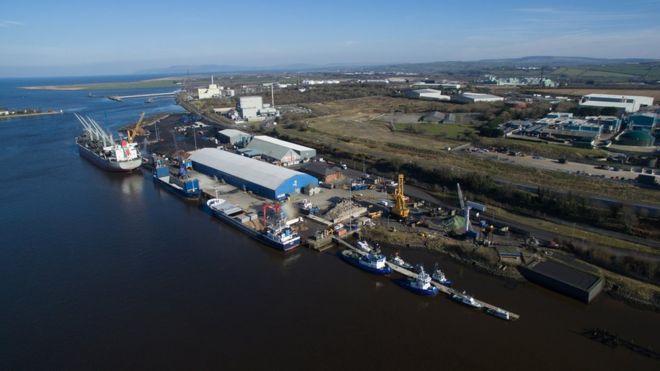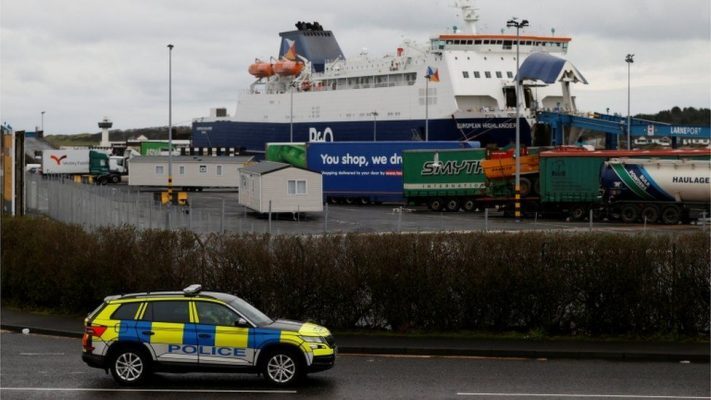
Foyle Port in Derry now operating under no NI Protocol regulations
The ‘Irish Sea border’ as it is now called is as a result of Brexit.
It means that most commercial goods entering the North of Ireland from Great Britain now require a customs declaration.
However, the British Government announced a three-month ‘grace period’ for parcels, meaning those sent by online retailers will be exempt until at least April.
It said the grace period was necessary to avoid disruption to deliveries at a time when many shops are closed due to pandemic restrictions.
The new arrangements also mean that many food products from GB now have to enter Northern Ireland through border control posts at NI’s ports, includig Foyle Port in Derry.
These products also need health certificates and there will be some physical checks.
Some of the new certification processes for food will be phased in over the next three months.
The first freight arriving in the North of Ireland under these new arrangements is expected on Friday afternoon, New Year’s Day.
Transport companies are not expecting significant volumes of freight on Friday.
There has been significant stockpiling ahead of the changes and it may take one or two weeks before freight volumes are at normal levels.
Some businesses, particularly haulage companies, are anxious about the new IT systems which are necessary for the border to function.
They have had less than two weeks to familiarise themselves with the new systems.
There will be no new processes or checks for the vast majority of goods leaving NI for GB.
The new arrangements flow from the Northern Ireland Protocol, a deal reached by the UK and EU in 2019.
Its purpose is to prevent a hard land border in Ireland.
That is achieved by keeping the North of Ireland in the EU’s single market for goods and by having the North apply EU customs rules at its ports.
This will allow goods to flow from NI to the Republic of Ireland and the rest of the EU as they do now, without customs checks or new paperwork.
The Protocol is opposed by unionist parties who fear it will weaken the North of Ireland’s position in the UK.
The arrangement does not change the North o9 Ireland’s constitutional position.

The first freight arriving in NI under the new arrangements is expected on Friday afternoon
The UK government has allocated more than £300m for a Trader Support Service to help businesses deal with the new customs arrangements.
The government is also covering the costs of the new certification requirements for food products.
A Movement Assistance Scheme will pay vets up to £150 to complete the Export Health Certificates which will need to accompany all live animals and products of animal origin entering Northern Ireland from Great Britain.
Tags:




